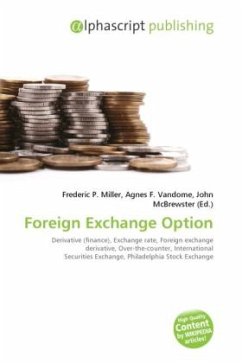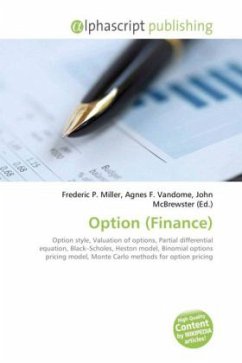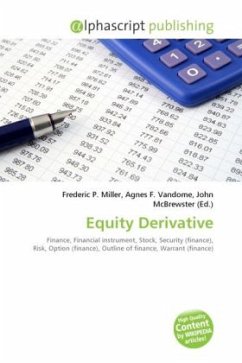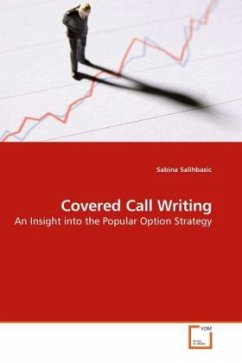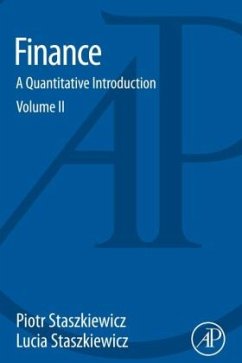
Call Option
Versandkostenfrei!
Versandfertig in 6-10 Tagen
23,99 €
inkl. MwSt.

PAYBACK Punkte
12 °P sammeln!
A call option is a financial contract between two parties, the buyer and the seller of this type of option. It is the option to buy shares of stock at a specified time in the future. Often it is simply labeled a "call". The buyer of the option has the right, but not the obligation to buy an agreed quantity of a particular commodity or financial instrument (the underlying instrument) from the seller of the option at a certain time (the expiration date) for a certain price (the strike price). The seller (or "writer") is obligated to sell the commodity or financial instrument should the buyer so ...
A call option is a financial contract between two parties, the buyer and the seller of this type of option. It is the option to buy shares of stock at a specified time in the future. Often it is simply labeled a "call". The buyer of the option has the right, but not the obligation to buy an agreed quantity of a particular commodity or financial instrument (the underlying instrument) from the seller of the option at a certain time (the expiration date) for a certain price (the strike price). The seller (or "writer") is obligated to sell the commodity or financial instrument should the buyer so decide. The buyer pays a fee (called a premium) for this right. The buyer of a call option wants the price of the underlying instrument to rise in the future; the seller either expects that it will not, or is willing to give up some of the upside (profit) from a price rise in return for the premium (paid immediately) and retaining the opportunity to make a gain up to the strike price (see below for examples). Call options are most profitable for the buyer when the underlying instrument is moving up, making the price of the underlying instrument closer to the strike price.



